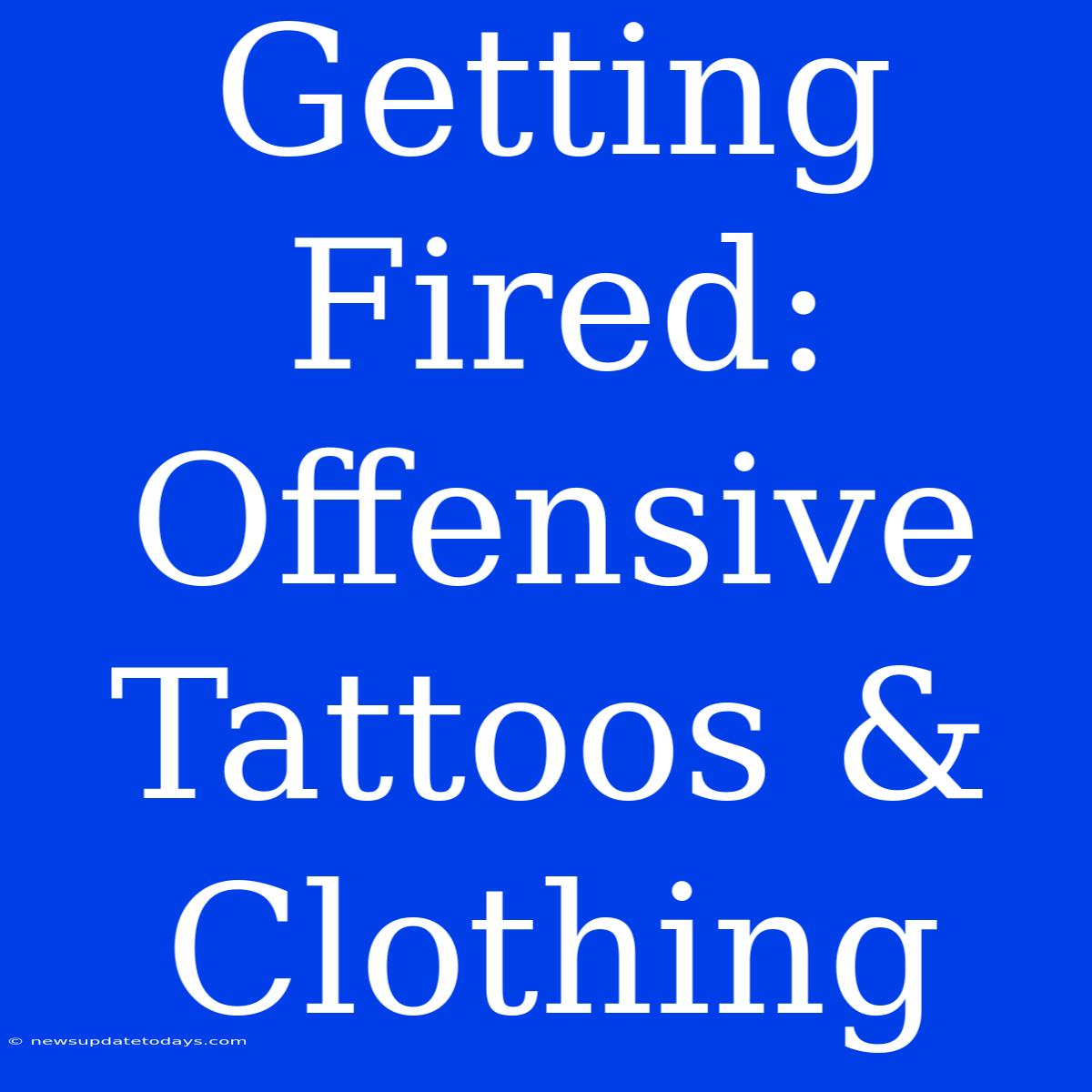Getting Fired: Offensive Tattoos & Clothing – Navigating Workplace Appearance
Getting fired can be a jarring experience, and sometimes, the reasons are unexpected. One area causing increasing concern for both employers and employees is the visibility of offensive tattoos and clothing in the workplace. This article explores the legal and ethical considerations surrounding workplace appearance, focusing on the potential consequences of visible tattoos and clothing deemed offensive by employers.
Understanding Employer Rights & Expectations
Many employers have dress codes and appearance policies outlining acceptable attire and visible body art. These policies are often designed to maintain a professional image, ensure client comfort, and prevent workplace disruptions. While employees have the right to self-expression, this right is not absolute in the workplace. Employers generally have the right to enforce reasonable dress codes and appearance policies that are consistently applied to all employees. The key here is reasonableness. A policy prohibiting offensive tattoos or clothing is generally considered reasonable, provided it's clear, consistently enforced, and doesn't discriminate based on protected characteristics.
What Constitutes "Offensive"?
The definition of "offensive" can be subjective and context-dependent. However, generally, tattoos or clothing displaying hate speech, explicit sexual content, violence, or discriminatory imagery are likely to be considered offensive in most professional workplaces. Even symbols or images that might be considered harmless by the employee could be perceived differently by coworkers, clients, or the public, leading to potential legal or reputational damage for the employer.
Legal Protections & Exceptions
While employers can generally enforce dress codes, certain legal protections apply. Policies cannot discriminate based on protected characteristics such as race, religion, gender, national origin, or disability. For instance, a policy prohibiting religious symbols would be illegal. Similarly, a policy disproportionately affecting a specific protected group would face legal challenges.
Religious exceptions are often made; employers may be required to make reasonable accommodations for employees' religious practices regarding clothing or body art, provided such accommodations don't cause undue hardship. It is crucial for employers to carefully consider these legal nuances and to ensure policies are meticulously drafted and fairly implemented.
Protecting Yourself: Proactive Steps
Employees can proactively minimize potential issues by:
- Reviewing the employer's dress code and appearance policies: Familiarize yourself with the rules before starting employment.
- Considering the workplace culture: Assess the overall atmosphere and dress code before displaying potentially controversial tattoos or clothing.
- Covering offensive tattoos: If possible, consider covering potentially offensive tattoos with clothing or makeup.
- Seeking clarification: If you have questions or concerns about the dress code, discuss them with your HR department or supervisor.
- Documenting communications: Keep records of any conversations regarding your attire or body art.
Navigating Difficult Conversations
If you're facing a potential issue with your tattoos or clothing, try to engage in open and respectful communication with your employer. Explain your situation, and ask for clarification. Remember that maintaining a professional and respectful demeanor is crucial throughout the process.
Conclusion
The issue of offensive tattoos and clothing in the workplace is complex, demanding a balanced approach. While employees have rights to self-expression, employers have the right to maintain a professional and productive work environment. Understanding the legal framework and proactive communication are essential for navigating this sensitive area successfully. Clear policies, consistent enforcement, and open dialogue can prevent misunderstandings and mitigate potential conflicts.

